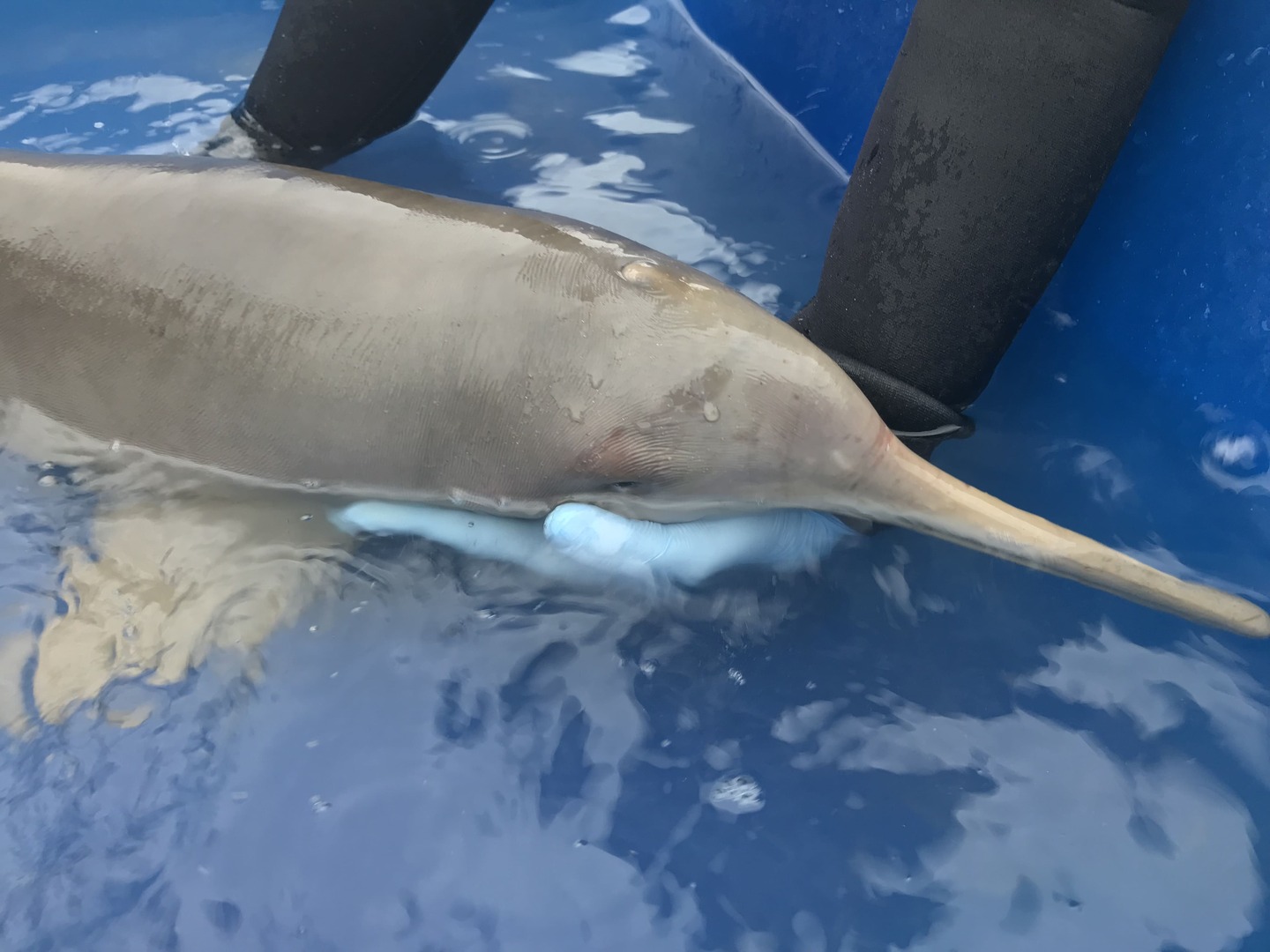The franciscana (Pontoporia blainvillei), a small species of dolphin that occurs only on the Brazilian coast (from Espírito Santo to Rio Grande do Sul), in Uruguay and Argentina, is at serious risk of being extinct from the planet. That’s what researchers from the Toninhas do Brasil Project say. The project has been working for the conservation of the species in Brazil for over 20 years. The maxim is related to the exorbitant number of franciscanas found dead in recent years. Between August/2015 and October/2020, almost 3000 strandings of dead franciscanas were recorded between the states of Santa Catarina and São Paulo, and the actual mortality rate is even higher, since not all dead individuals get stranded on the beach and collected. The population is estimated at less than 7000 animals in these regions.
This number is alarming for a species that has been on the list of endangered animals in Brazil since 2010 and that, in 2014, was classified as “critically endangered”, the highest level of threat before disappearing from nature.
Franciscanas live in areas close to the coast, where human activity is intense, and occur mainly in regions with a maximum depth of 50 meters. In a preserved environment, free of threats, these animals can live for over 20 years, but they only have one calf every two or three years. The main threat to the species is bycatch, i.e. the incidental capture in fishing nets, in which non-target species unintentionally end up tangled in the nets.
Toninhas do Brasil, which has a partnership with Petrobras, through the Petrobras Socioenvironmental Program, is seeking alternatives to contribute to the conservation of the species in Brazil. “We are expanding our area of operation to the states of Paraná and São Paulo, as well as Santa Catarina, where the project is based. At this stage, our work is focused on a pilot project using new technologies in fishing nets, acoustic alarms, in addition to mapping the fisheries value chain and various communication and environmental education activities”, explains biologist Marta Cremer, general coordinator of Toninhas from Brazil.
The fight for the conservation of franciscanas is a race against time. A little over a decade ago, the baiji (Lipotes vexillifer), a dolphin from China, was considered extinct. In Mexico, another species of dolphin, the vaquita (Phocoena sinus), is on the brink of collapse, with less than 30 individuals left in the wild, also due to gillnets. The researchers from Toninhas do Brasil emphasize that there is an urgent need for more effective public policies and, above all, the involvement of society as a whole, for the development of sustainable fishing that guarantees the conservation of fishing resources and several other species, such as the franciscana.




